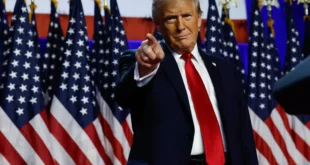The world is witnessing a significant shift from the hyperglobalization of the late 20th and early 21st centuries towards a period of de-globalization, driven by political protectionism and resource nationalism. This shift is marked by countries increasingly focusing on safeguarding their domestic industries, securing strategic resources, and reducing dependencies on global supply chains. The trend has wide-ranging economic, political, and social implications that are reshaping the future of international trade and cooperation.
The Rise of Protectionism and Resource Nationalism
Protectionism is a policy approach where governments shield domestic industries from foreign competition by imposing tariffs, quotas, and other trade barriers. In recent years, several global events have catalyzed the resurgence of protectionism, including the 2008 financial crisis, the U.S.-China trade war, Brexit, and the COVID-19 pandemic. These events have prompted countries to reassess their reliance on global supply chains and seek greater control over their economic systems.
Resource nationalism is another growing trend, particularly in nations rich in natural resources like energy, minerals, and food. Governments are increasingly asserting control over these resources, often through export restrictions or nationalization efforts, to ensure domestic supply in times of crisis. Russia’s invasion of Ukraine and the subsequent disruptions to global energy markets, along with the COVID-19-induced shortages in medical supplies, have accelerated this shift towards resource nationalism (World Economic Forum, 2023).
Causes of De-globalization
Several factors are driving the current de-globalization trend. First, geopolitical conflicts, particularly the war in Ukraine, have disrupted established global trade networks. Sanctions against Russia and the subsequent energy crisis in Europe have forced nations to reconsider their dependencies on foreign powers for critical resources (IMF, 2023). Additionally, ideological rifts between Western democracies and authoritarian regimes like China and Russia are prompting nations to shift away from free trade policies that once fueled global growth (World Economic Forum, 2023).
Another significant cause is the COVID-19 pandemic, which exposed vulnerabilities in global supply chains. The lockdowns in major manufacturing hubs like China led to shortages of essential goods and caused widespread economic disruptions. This has pushed many countries to adopt policies aimed at “reshoring” or bringing manufacturing back home to ensure greater resilience in the face of future global shocks (BCG, 2023).
Climate change is also playing a role. As countries strive to reduce their carbon footprints, they are implementing policies that favor local production and consumption over international trade. The European Union’s Carbon Border Adjustment Mechanism (CBAM), for example, imposes tariffs on carbon-intensive imports, thereby encouraging domestic production that adheres to stricter environmental standards (BCG, 2023).
Economic Impacts of Protectionism and Resource Nationalism
1. Stifled Economic Growth: One of the most immediate economic impacts of protectionism is reducedeconomic growth. Trade barriers like tariffs and quotas disrupt the flow of goods and services, leading to higher prices for consumers and businesses. This can stifle domestic demand and reduce investment, as businesses face higher costs and uncertainties about future trade policies (Economics Online, 2023). For example, the U.S.-China trade war significantly disrupted supply chains in industries like electronics and agriculture, leading to job losses and decreased economic activity in both countries.
2. Supply Chain Disruptions: Modern global supply chains are intricately interconnected, with components and raw materials often crossing several borders before a final product is made. Protectionist measures, such as tariffs, can lead to significant disruptions in these supply chains. For instance, during the U.S.-China trade war, the imposition of tariffs on Chinese goods caused delays and increased costs for American manufacturers relying on Chinese components (IMF, 2023). The COVID-19 pandemic further exacerbated these disruptions, highlighting the risks of over-reliance on global supply chains for critical goods like medical supplies and semiconductors (Economics Online, 2023).
3. Increased Consumer Prices and Reduced Choices: Protectionist policies often lead to higher prices for goods, as tariffs and other trade barriers raise the cost of imports. These higher costs are typically passedon to consumers. In addition, protectionism can reduce the variety of goods available in domestic markets, as imported products become more expensive or scarce. This can stifle innovation and reduce the competitiveness of domestic industries, as they face less pressure from foreign competitors (Economics Online, 2023).
4. Investment Uncertainty: The uncertainty created by protectionist policies can deter foreign and domestic investment. Businesses may hesitate to invest in new projects or expand operations if they are unsure about future trade policies or if they anticipate higher costs due to tariffs or other barriers. This can slow economic growth and reduce job creation, particularly in industries that rely heavily on international trade (IMF, 2023).
The Slowdown of Globalization
The trend towards de-globalization represents a significant shift in the global economic order. Global trade, which once grew at a faster rate than global GDP, is now expanding at a much slower pace. According to the Boston Consulting Group, global trade is expected to grow by just 2.3% per year through 2031, compared to a 2.5% annual increase in global GDP (BCG, 2023). This slowdown, often referred to as “slowbalization,” marks the end of the hyperglobalization era that characterized the late 20th century.
The shift towards protectionism and resource nationalism also signals a move away from the economic integration that has defined the global economy for decades. Countries are increasingly prioritizing national security and economic resilience over the benefits of global value chains. While this may lead to greater stability in times of crisis, it also risks slowing global economic growth and reducing the opportunities for international cooperation.
Potential Long-Term Consequences
1. Fragmentation of the Global Economy: One of the most significant long-term consequences of de-globalization is the fragmentation of the global economy into regional blocs. As countries turn inwards and seek to reduce their dependence on global supply chains, there is a risk that international trade and investment flows will become increasingly regionalized. This could lead to a more fragmented global economy, with distinct economic blocs emerging in regions like Asia, Europe, and North America (World Economic Forum, 2023).
2. Reduced Innovation and Technological Progress: Globalization has been a major driver of innovation and technological progress, as companies and countries compete in a global marketplace. The fragmentation of the global economy could reduce the incentives for innovation, as domestic industries face less competition from foreign firms. This could slow the pace of technological advancement and reduce the overall productivity of the global economy (IMF, 2023).
3. Geopolitical Tensions: Protectionism and resource nationalism can also exacerbate geopolitical tensions, as countries compete for access to critical resources like energy, food, and rare earth minerals. This competition could lead to greater instability in international relations, as countries seek to secure their own economic interests at the expense of global cooperation (Economics Online, 2023).
Conclusion
The rise of protectionism and resource nationalism marks a significant shift in the global economic landscape. While these policies may provide short-term benefits by protecting domestic industries and securing critical resources, they also pose significant risks to global economic growth, innovation, and international cooperation. As the world moves further into the era of de-globalization, policymakers must navigate the delicate balance between protecting national interests and maintaining the benefits of global trade and integration.
 Geostrategic Media Political Commentary, Analysis, Security, Defense
Geostrategic Media Political Commentary, Analysis, Security, Defense





